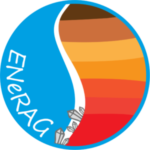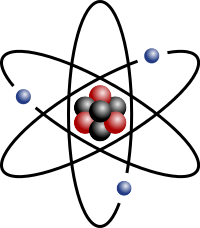Date: 11-13 February 2020
Location: Budapest, Hungary
The registration is open until 5th February 2020.
Description of the course
The course aims to review the current state of the art in the application of isotope geochemistry for the understanding of processes in hydrothermal systems. Lectures will focus on the traditional and new, cutting edge instrumentation of analyses, as well as the current developments and future perspectives of isotope geochemistry in fluid-rock systems. The presentations will be divided between trace element analyses, radioactive elements for geochronological studies and radiogenic elements as conservative isotope tracers. The use of traditional and non-traditional stable isotope tracers in understanding mineralization processes will also be discussed. Tracking of sources of fluids and their components, and determination of ages of mineralization processes will be presented and supported with various case studies.
Lecturers:
Hugh O`Brien, Yann Lahaye and Ferenc Molnár (Geological Survey of Finland)
Invited lecturers:
Holly Stein (Colorado State University and University of Oslo, Norway)
Attila Demény and Zoltán Pécskay (Hungarian Academy of Sciences)
Registration
The registration deadline: 5th February 2020.
The registration is open up to 30 participants.
Because of this limitation we would like to aks those who have already registered, but later it turns out that they will not be able to attend the course to email us immediately on the following mail address: enerag@elte.hu
Applications for the participation in the course are accepted on the basis of the order of registrations.
Please note: Travel and accommodation are the responsibility of the participants. Only coffee breaks will be provided during the course (lunch will not be provided).
Program*
February 11, Tuesday
9.00 – 9.10 Welcome and introduction – Judit Mádl-Szőnyi, project coordinator of ENeRAG Horizon 2020 project
Trace elements and crustal fluids
9.10 – 10.30 General introduction – Hugh O`Brien
10.30 – 11.00 Coffee/tea break
11.00 – 12.30 Oxide minerals– Hugh O`Brien
12.30 – 13.30 Lunch break
13.30 – 15.00 Sulphide minerals– Hugh O`Brien
15.00 – 15.30 Coffee/tea break
15.30 – 17.00 Silicate minerals– Hugh O`Brien
February 12, Wednesday
Stable and radiogenic isotope tracers and geochronology
Stable isotopes
9.00 – 09.30 Introduction – Yann Lahaye
09.30 – 10.30 Non-traditional (Li, B, Fe, Ni, Cu) stable isotopes – Yann Lahaye
10.30 – 11.00 Coffee/tea break
11.00 – 12.30 Traditional (H, O, C, S) stable isotopes – Attila Demény
12.30 – 13.30 Lunch break
Radiogenic tracers and geochronology of hydrothermal processes
13.30 – 15.00 The Rb-Sr, Nd-Sm and Pb-Pb systems– Yann Lahaye
15.00 – 15.30 Coffee/tea break
15.30 – 17.00 U-Pb dating– Yann Lahaye
February 13, Thursday
Radiogenic tracers and geochronology of hydrothermal processes cont.
9.00 – 10.30 Re-Os dating – Holly Stein
10.30 – 11.00 Coffee/tea break
11.00 – 12.30 Re-Os dating cont. – Holly Stein
12.30 – 13.30 Lunch break
13.30 – 15.00 K-Ar and Ar-Ar dating – Zoltán Pécskay
15.00 – 15.30 Coffee/tea break
Case studies
15.30 – 17.00 Tertiary hydrothermal systems in the Carpathian volcanic arc and Precambrian hydrothermal systems in the Fennoscandian and Canadian shields – Ferenc Molnár
* We reserve the right to make minor changes in the program.
The course is organized by ENeRAG H2020 project.


